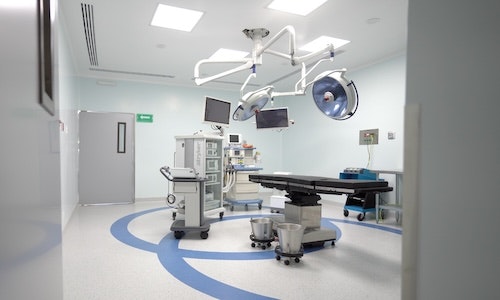Gastric Sleeve Diet After One Year
 By the end of the first year after gastric sleeve surgery, patients will lose all of the weight they’ll lose from the procedure. In fact, patients may start to gain back a little of the weight they lost as their body naturally adjusts to the changes to their stomach size. This is normal, and Dr. Francisco Gonzalez goes over this with all his Tijuana, B.C. patients.
By the end of the first year after gastric sleeve surgery, patients will lose all of the weight they’ll lose from the procedure. In fact, patients may start to gain back a little of the weight they lost as their body naturally adjusts to the changes to their stomach size. This is normal, and Dr. Francisco Gonzalez goes over this with all his Tijuana, B.C. patients.
A good diet can help patients maintain a healthy weight and improve general wellness. The team at Oasis of Hope would like to offer some insight on a gastric sleeve patient’s diet one year after their procedure. This should help you understand life after bariatric surgery better, and why you have to plan meals for your nutritional needs.
Have Multiple Meals a Day
Gastric sleeve patients can expect to eat multiple meals a day. This will help patients feel sated and meet their nutritional needs. In addition to breakfast, lunch, and dinner, small healthy snacks between meals are ideal.
Focus on Protein
Protein will remain your primary source of energy through the day. Make sure you have lean sources of protein in your diet. This might include:
- Egg whites
- Beans
- Lentils
- White-meat poultry
- White-flesh fish
- Low-fat dairy
- Tofu
You can also have protein shakes as needed to help you get the energy you need through the day.
Limit Carb Intake
You can have carbs after gastric sleeve surgery, but it’s a good idea to limit your carb intake to avoid packing on excess pounds. This is especially true of foods made from refined flour, such a white bread, pastries, and pastas.
Avoid Excess Sugar
As you’re looking at labels and considering your diet, you probably noticed just how much added sugar there is in your favorite foods. Try to avoid foods with added sugar whenever possible. You’ll limit calorie intake and make sure your body is running as efficiently as possible.
Continue to Savor Your Meals
The main rule our Tijuana bariatric surgery center gives to patients is to savor meals. That means you should chew slowly to make sure your food is easy to digest and process, and to eat slowly to avoid overeating. This is great for weight maintenance and to avoid discomfort after meals.
Drink Water Between Meals Rather Than During Meals
Hydration is going to be essential no matter what. Make sure you drink a lot of water between meals. Avoid drinking water during mealtime in order to avoid getting too full. Don’t drink fruit juice or sports drinks since these have added sugar you do not need while quenching your thirst.
Consider Nutritional Supplements If Needed
Many people who’ve undergone bariatric procedures take vitamins in order to address nutritional deficiencies following surgery. Calcium, iron, B12, vitamin D, copper, folate, and zinc supplements can all be very helpful. Speak with your physician about what supplements are most ideal for your dietary needs.
Foods You Should Continue to Avoid
Even a year after your gastric sleeve, it’s important to avoid the following foods that can cause excessive weight gain or discomfort during the digestion process:
- Tough red meats
- Soft drinks
- Sugary beverages
- Dried fruits
- Sweets
- Fast food
- Heavily processed foods
Learn More About Gastric Sleeve Surgery
If you would like to learn more about gastric sleeve surgery and how it can help you lose weight and keep it off, be sure to contact our skilled team of bariatric surgeons. You can reach Oasis of Hope by phone in Tijuana at (619) 304-2084.








